
Puerto Rico Wants To Be The 51st State
Podcast: Download
Darrell Castle talks about Puerto Rico’s desire to become the 51st state and what if anything it brings to the table.
Transcript
PUERTO RICO WANTS TO BE THE 51st STATE
Hello this is Darrell Castle with today’s podcast. Today is Friday July 7, 2017 and on today’s pod cast we will be talking about the territorial island of Puerto Rico, its debt and its desire to become the 51st state. On June 11th of this year a non-binding referendum was held in Puerto Rico concerning whether the Island should seek statehood in the United States or not.
The ballot had three possible choices: become a state of the United States, become an independent nation, or remain in current status. 97% voted to become a state of the United States but only 23% of eligible voters actually voted. Four previous referendums have been held on the Island, the last in 2012 but this is the first time the vote for statehood was so overwhelming and part of our discussion will concern why.
Puerto Rico currently has roughly 79 billion in debt in the form of bonds plus about 49 billion in unfunded liabilities primarily in the form of pension funds for government employees. These debts are unpayable have reached default status and earlier this year the Island requested bankruptcy protection but according to US law that protection is not available to Puerto Rico as a territory and not a state.
Every Politician that I can account for in Puerto Rico wants statehood as does every Democrat politician on the mainland. Why, because it would provide access to U.S. Bankruptcy courts as it did for the city of Detroit a couple of years ago and it would provide a few million dependent Democrat votes as well as two more Democrat senators and a few more Democrat members of Congress. The current Puerto Rican debt is four times that of Detroit when that city went into bankruptcy.
The newly elected governor of Puerto Rico is Ricardo Antonio Rossello . He was educated at the University of Michigan and M.I.T. where some of the smartest people in the country end up. He focused on research into stem cell technology and worked in that research at Duke University. He served as a delegate to the Democratic National Convention in 2008 and 2012 and founded an organization dedicated to statehood and that organization propelled him to the governor’s office.
The governor understands statehood to be the avenue of economic improvement for Puerto Rico and makes no secret of his desire for it. After the referendum, he was quoted as saying the United States Congress must listen to the unfettered will of the majority. He went on to talk about how the United States tries to spread democracy around the world so it simply must agree to the democratic will so close to home.
However, it is not the governor of Puerto Rico who will decide this question, nor is it the majority of the people of Puerto Rico, but it is the U.S. Congress. Yes, Congress makes the decision after consideration of all the factors including what the Puerto Rican people themselves want, what the bondholders want, what the Democrats want and what the Republicans want. I hope that Congress takes time to ask and to explore exactly what this island territory could add to the United States that we don’t already have.
The island is more than 100 billion in debt and the bondholders want to be paid or they want to execute on Puerto Rican assets and they know that with statehood and a legitimate bankruptcy filing they could not do that. They are all in on statehood but not until they have been paid. George Pataki, the former governor of New York, represents many of the bondholders and he supports statehood but not until his clients have been paid.
So both sides claim statehood as the prize to be gained. Bondholders and their lobbyists say that statehood can come but not until they are paid. Governor Rosello says the bonds can be paid but not until statehood arrives. He says that Puerto Rico’s territorial status limits opportunities for economic growth, limits opportunities for mainland businesses to relocate there and makes it impossible for the island to live within its means. That’s right, without statehood the island government must spend more than it takes in.
Let’s take a minute and see what the island really brings to the table now, not future projections and promises but right now. It has a population of a little over 3.6 million people. Unlike Governor Rosello, who went to M.I.T. where the smartest kids in the country go to study, the population is for the most part poorly educated. The last study I could find was done in 2013 but 8th graders across the island were tested in math and 95% tested below basic skill level, only 5% tested at basic skill level, and none, that’s zero, were above basic skill level.
That test indicates a low skilled population which is exactly the level that jobs on the mainland are disappearing for. The low skilled population makes for a low tax base and very little prospect of escaping from the crushing debt and living within means in the future. Income per capita is an extremely low $11,400. The labor participation rate is 40%. That means that only 40% of those who could work are actually working. More than 50% of the population is receiving welfare and a great percentage of those actually working are employed by the government in some capacity, thus the $49 billion in unpaid and unfunded pension benefits. The unemployment rate is officially listed at 12.6%.
Governor Rosello says he is making progress in his fight against the debt and the bondholders. Since it is not possible to get any more credit he is trying to sell off the assets of the island’s people and its government. He is taking bids from private companies to operate or improve seaports, regional airports, water meters, student housing, traffic-fine collections, parking spaces and a passenger ferry. The goal is to attract more than $500 million dollars in investment starting now. In the future he plans to privately operate the island’s power utility, water and sewer system, and waste management.
The governor hasn’t announced how he plans to use the funds but it is obviously to pay down debt so under this plan the bondholders will receive the benefits of the infrastructure currently owned by the Puerto Rican people. The governor believes that his public-private partnership deals will revitalize the island’s economy and bring 100,000 new jobs.
I can tell you unequivocally that it is unwise and a very poor financial decision to sell your house, which is hopefully an appreciating asset, in order to make credit card payments which bought unsecured items long since consumed and forgotten, but that sounds a lot like this proposal.
The governor is a very bright and energetic man with a lot of exciting new plans for revitalizing his island and I wish him all the best in his efforts. I can, however, find no benefit whatsoever for the people of the United States to take in Puerto Rico as a state. It is a debt ridden island with a poorly educated, low wage, welfare dependent population that would bring more problems with no solutions for this country. I don’t see how the decision is even a tough one. The answer is a resounding thanks but no thanks.
In conclusion I will say that in this left leaning, politically correct, welfare anaesthetized, country of ours, most things, no matter how completely without merit, are possible. If Congress wants two more Democrat senators badly enough they just might do it.
At least that’s the way I see it.
Until next time folks,
This is Darrell Castle.
Thanks for listening.
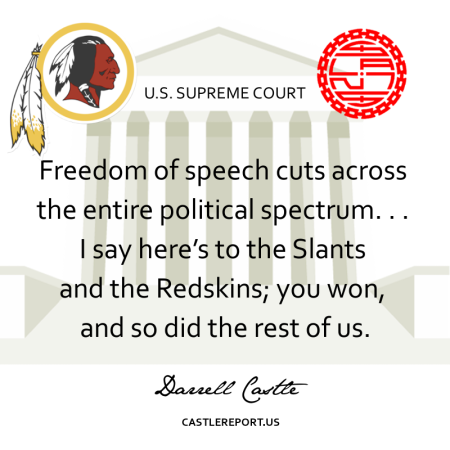
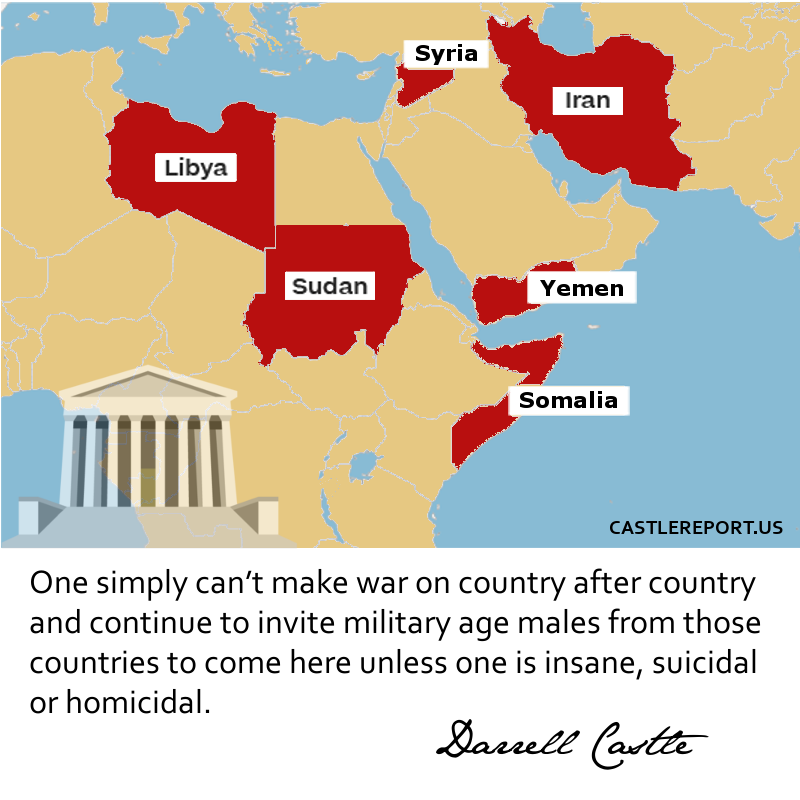

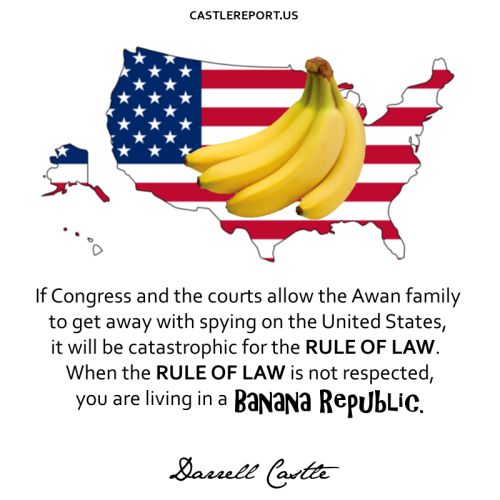
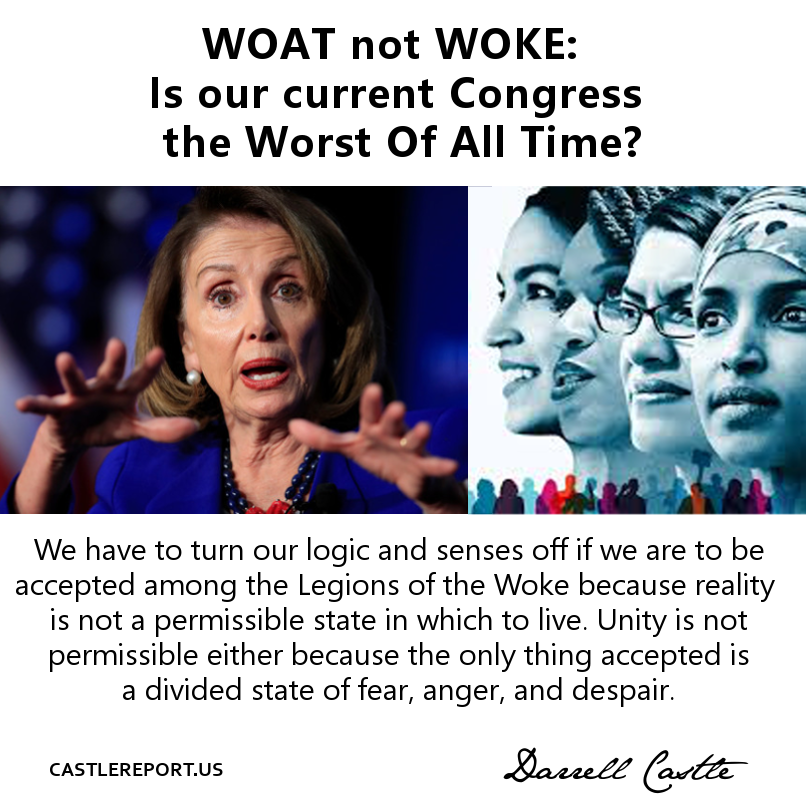
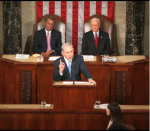
5 Comments
Bob Peck
Puerto Rico telling the U. S. that we have to accept them into the union because they’ve taken a vote and that’s what the people want, is the same as a woman telling a man that she’s lonely and poor and doesn’t want to be single any more, therefore, he has to marry her or else she’ll cry and tell everyone he’s being mean.
If we make Puerto Rico a state because that will supposedly help their economy and pull them out of poverty, then don’t we owe it to the world to take into the union every poor, backwards and under privileged state, nation and people group so that they can all be rich and prosperous? Or would that just tie us to their poverty like an anchor weighing all of us down together?
How about if instead we go back to our country’s beginnings and take note of what America did differently than the other nations of the world that made our people and land so prosperous, then teach that to other countries so that they can do the same. Oh, but that would require acknowledging our Christian heritage, Biblical moral values, work ethic, individual responsibility, liberty and dependence upon divine favor. Teaching that would constitute disciplining the nations and fulfilling The Great Commission – I don’t suppose we would want to do that.
William Beach
I am not for Puerto Rico becoming a State because as mentioned it does not benefit the U.S to do so. It is however, unfair/unjust for Puerto Rico to remain a territory of the U.S. they cannot vote for President, have no real representation in Congress and very limited legal avenues due to being a territory. As far as I am concerned we have held onto Puerto Rico way too long, I am sure most people from the island would consider themselves Puerto Ricans first and as such should be there own nation.
Darrell
Independence was one of the choices in the recent referendum but it was rejected in favor of statehood by a vote of 97 %.
Andre
I agree with William. I don’t think they should become a state but the reason they think they have a right to be a state is because they have been a territory for so long. This Government should have forced independence on Puerto Rico a very long time ago. And not just Puerto Rico they should release the other territories as well American Samoa, Virgin Islands etc….
This is nothing more than modern day colonialism.
Darrell
They are free to go their way anytime they want so it is not colonialism at all. It’s more like dependent/welfareism.